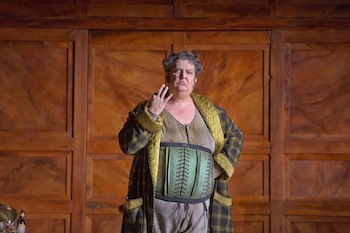Fuse News Comment: Verdi vs. the Synthesized Xylophones
All was well — at moments, thrilling — until the credits rolled. Then the Regal did what it always did: it launched its terrible muzak.
by Debra Cash
At the movies, I’m a pretty docile audience member. I’m often ready to move to avoid noisy patrons, and rarely yell when the guy in the projector booth is too busy texting his friends to remember to turn off the house lights.
But this morning I sent a note to the Tennessee offices of the Regal Theatre to complain.
For the past six years, I have been a devotee of the Metropolitan Opera’s broadcasts in HD. Seeing the Met as a repertory company, catching productions I would never have seen at a price I can afford, and having an entire season subscription within driving distance has been a great pleasure. This may be the most important contribution director Peter Gelb has made to our cultural commonwealth even as he and others occasionally gripe about the “cannibalization” of the live opera audience and the Met, along with other opera companies, tries to reverse the trend of the distinctly graying demographic filling the seats.
Yesterday James Levine conducted from his motorized wheelchair in reassuringly acute musical control. Ambrogio Maestri, who laced his portrayal with a dollop of Zero Mostel, along with Stephanie Blythe, and a cast of splendid young singers romped through Robert Carsen’s deliciously retro production that moves Shakespeare’s knight of huge appetites, Falstaff, to 1950s England.
All was well — at moments, thrilling — until the credits rolled. Then the Regal did what it always did: it launched its terrible muzak. We had spent three-plus hours getting Verdi under our skins. Now, before we even got to the lobby, it was pushed aside by synthesized xylophones.

